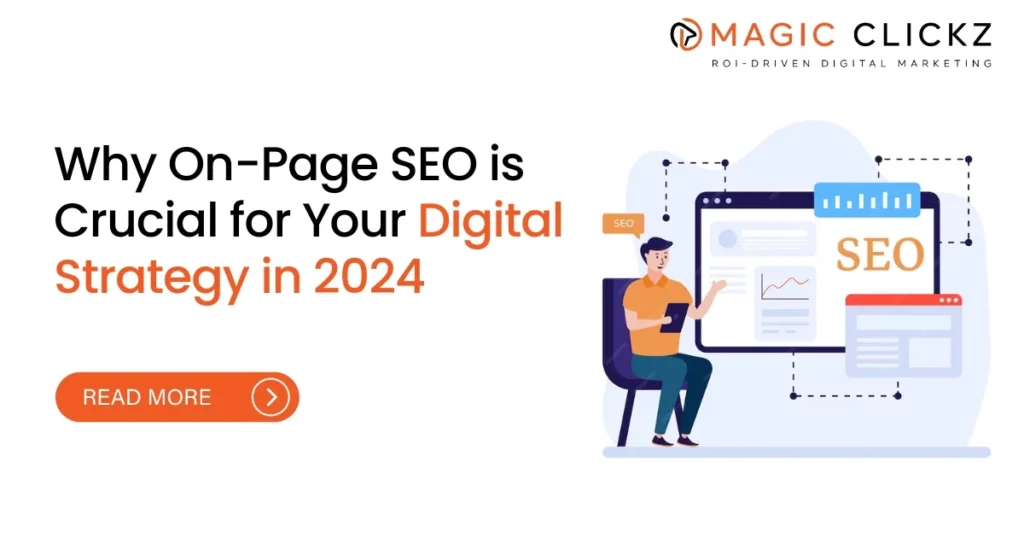
Imagine a stunning art gallery, hidden from the world, with no visitors to admire its beauty. Similarly, a website without on-page SEO is a hidden gem, unseen by potential visitors.
On-page SEO is the key to unlocking that visibility, and transforming your website into a hub of activity. Whether you’re a beginner or a seasoned marketer, this guide brought to you by the best digital marketing agency will make on-page SEO easy to grasp and implement. By the end, you’ll know how to boost your rankings with the right SEO strategies and showcase your digital masterpiece to the world!
Stuck on page 10?
Let’s use on-page SEO to boost your website to the top! Read the full blog to learn how to improve your rankings and get noticed.
Table of Contents:
- What is On-Page SEO?
- Benefits of On-Page SEO
- Importance of On-Page SEO
- How to Perform On-Page SEO
- Ready to Skyrocket Your Rankings? Let’s Make It Happen!
What is On-Page SEO?
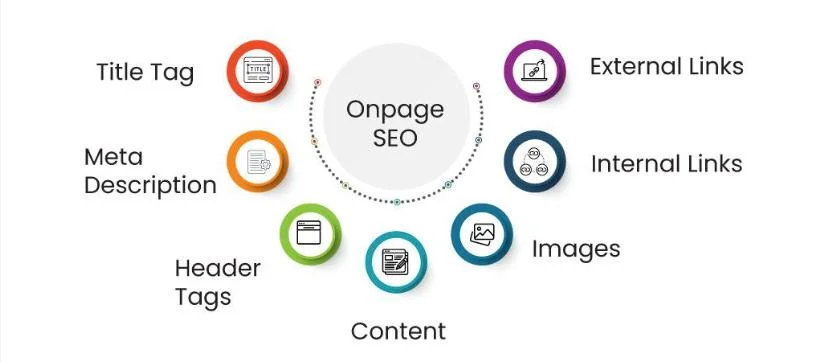
There are two main types of SEO: on-page SEO and off-page SEO.
On-page SEO (or on-site SEO) involves optimizing your website’s content and structure to improve its visibility in search engine results pages (SERPs). Key components of on-page SEO include title tags, meta descriptions, HTML tags, content optimization, and layout adjustments to enhance the website’s search engine friendliness.
Off-page SEO, on the other hand, refers to actions taken outside your website to improve its authority and search engine rankings. This often includes strategies like building backlinks, social media marketing, and influencer outreach.
Effective SEO requires a balance of both on-page and off-page tactics. For on-page SEO, thorough keyword research and content optimization are essential. By integrating relevant keywords into headings and text, and using meta tags, alt attributes for images, and internal linking, you improve user experience and search engine crawlability. Meanwhile, off-page SEO helps boost your site’s credibility and authority through external links and social signals.
Mastering both on-page SEO, including the best practices for on-page SEO in 2024, and off-page SEO is key to establishing your website as a valuable resource in the digital landscape.
Benefits of On-Page SEO
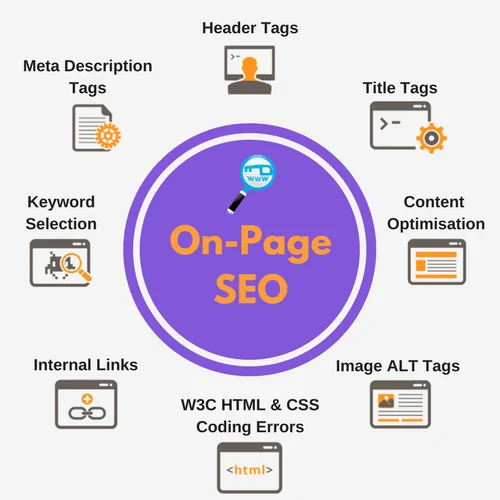
- Improved Search Engine Rankings: By implementing effective on-page SEO techniques, you can significantly boost your website’s rankings in search engine results pages (SERPs), leading to increased organic traffic and making it a vital part of your overall digital marketing strategy.
- Enhanced User Experience: On-page SEO practices focus on optimizing website structure and content, resulting in a more user-friendly experience. This can lead to lower bounce rates and higher engagement, which are essential for attracting and retaining visitors.
- Increased Conversions: A well-optimized website is more likely to convert visitors into customers. By facilitating easier navigation and helping users find what they need quickly, you can improve your conversion rates and ultimately drive sales with the help of On-Page SEO.
- Better Brand Visibility: Higher search engine rankings enhance your brand’s visibility and credibility. When your website appears at the top of search results, it signals to users that your brand is reputable and relevant.
Importance of On-Page SEO
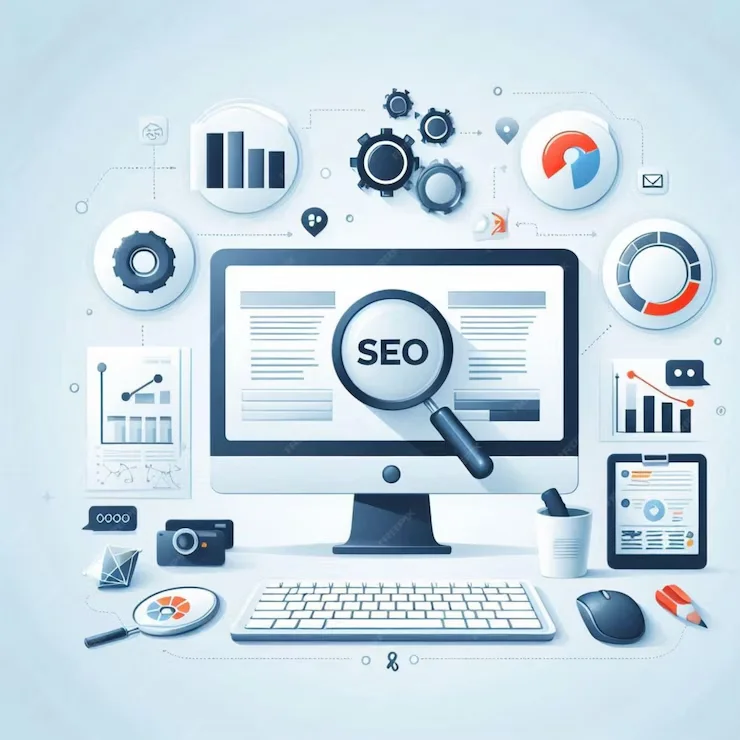
On-page SEO is a crucial aspect of any successful digital marketing strategy. On-page SEO not only helps you reach your target audience organically but also establishes your website as an authority in your industry. By optimizing your website’s content and structure, you enhance its visibility on search engines, making it easier for potential customers to find you.
Investing in on-page SEO allows you to drive more traffic to your website, generate quality leads, and ultimately achieve your business goals. Additionally, it improves user experience and engagement, encouraging visitors to explore your offerings. When executed effectively, on-page SEO positions your website among the best digital marketing services, showcasing your expertise and helping you stand out in a competitive landscape.
How to Perform On-Page SEO
1. Keyword Research
2. Optimize Title Tags and Meta Descriptions
3. Optimize Headings
4. Create High-Quality Content
5. Optimize Images
6. Improve Website Structure
7. Optimize for Mobile
8. Monitor and Analyze
1- Keyword Research: A Cornerstone of On-Page SEO
Keyword research is the process of identifying the specific words and phrases that your target audience is using to search for information online. It’s a crucial step in on-page SEO, as it helps you optimize your website’s content to match the search intent of potential visitors.
Key Steps in Keyword Research:
- Identify Your Target Audience: Understand who you are trying to reach. What are their needs, interests, and pain points? This will help you narrow down your keyword research.
- Brainstorm Keywords: Start by making a list of keywords and phrases related to your business or topic. Consider synonyms, variations, and related terms.
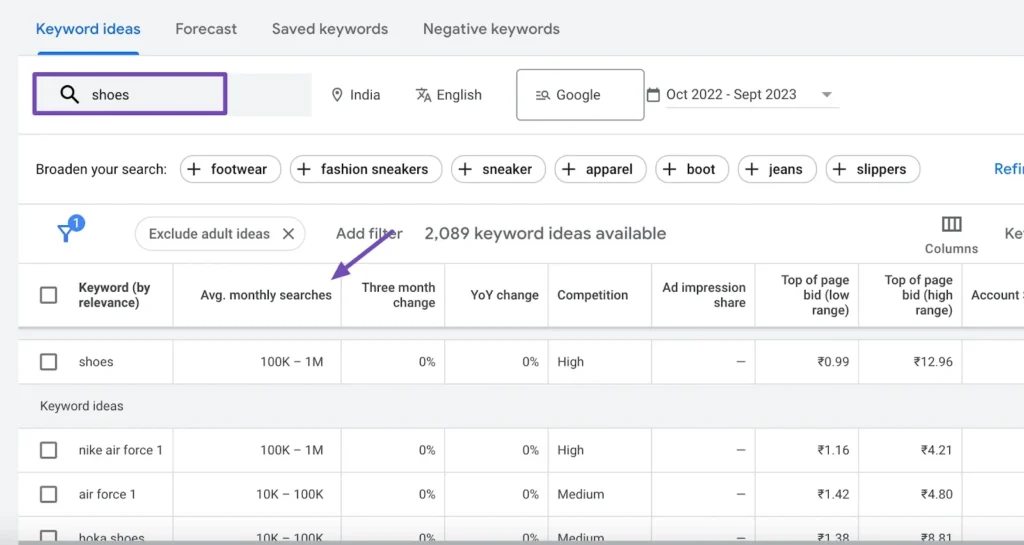
- Use Keyword Research Tools: There are many online tools available to help you discover relevant keywords. Some popular options include:
- Google Keyword Planner: A free tool from Google Ads that provides search volume data and suggested keywords.
- SEMrush: A comprehensive SEO toolset that offers keyword research, competitor analysis, and backlink checking.
- Ahrefs: Another powerful SEO tool that provides similar features to SEMrush.
- Moz Keyword Explorer: A keyword research tool from Moz that offers search volume data, keyword difficulty, and suggested related terms.
- Analyze Keyword Metrics: When evaluating keywords, consider the following metrics:
- Search Volume: The number of times a keyword is searched each month.
- Keyword Difficulty: A measure of how competitive a keyword is.
- Cost Per Click (CPC): The average amount advertisers pay per click for a given keyword.
- Prioritize Keywords: Based on your analysis, prioritize keywords that have a good search volume but low competition. These keywords are more likely to drive traffic to your website without requiring extensive effort.
- Consider Long-Tail Keywords: Long-tail keywords are more specific phrases that have lower search volume but are often less competitive. They can be a great way to target niche audiences and attract qualified traffic.
Tips for Effective Keyword Research:
- Be Specific: Use specific keywords to attract targeted traffic.
- Consider User Intent: Understand what users are seeking—information, products, or services.
- Use Keyword Tools: Experiment with various keyword research tools to find the best fit.
- Keep Keywords Natural: Integrate keywords seamlessly into your content to avoid keyword stuffing.
- Monitor and Adjust: Regularly track your keyword rankings and make necessary adjustments.
By conducting thorough keyword research, you can optimize your website’s content to attract more organic traffic and improve your search engine rankings.
2- Optimising Title Tags and Meta Descriptions
Title tags and meta descriptions are essential elements of on-page SEO that directly influence your website’s visibility and click-through rates in search engine results pages (SERPs). By crafting compelling title tags and meta descriptions, you can entice users to click on your search results and visit your website.
Purpose: Title tags are the clickable headlines in search engine results and play a key role in SEO. They help search engines understand your content and grab users’ attention.
- Length Matters: Keep title tags under 60 characters for better visibility.
- Keywords: Use primary keywords naturally to improve ranking.
- Unique for Each Page: Tailor title tags to match the content of individual pages.
- Call to Action: Include words that encourage clicks, like “Learn More” or “Discover.”
Best Practices:
- Keep it Relevant: Ensure the title accurately reflects the content of your page.
- Include Keywords: Incorporate your target keywords naturally within the title.
- Be Concise: Aim for a title length of around 50-60 characters.
- Make it Compelling: Use strong, action-oriented language to entice users to click.
Meta Descriptions
- Purpose: The meta description provides a brief summary of your page’s content, appearing below the title in search results.
- Best Practices:
- Be Descriptive: Clearly summarize the main points of your page.
- Include Keywords: Naturally incorporate your target keywords.
- Be Engaging: Write a compelling description that encourages users to click.
- Keep it Concise: Aim for a length of around 150-160 characters.
Importance of Click-Through Rates (CTRs)
- Higher Rankings: Search engines may consider CTR as a ranking factor. A higher CTR can signal that your content is relevant and valuable to users.
- Increased Traffic: A higher CTR means more users are clicking on your search result, driving more traffic to your website.
- Improved User Experience: Well-written title tags and meta descriptions can help users quickly understand the content of your page, improving their overall experience.
3- Optimising Headings for Better SEO and User Experience
Headings are essential elements of your website’s structure that help both search engines and users understand your content. By using headings effectively, you can improve your website’s SEO and enhance the user experience (UX).
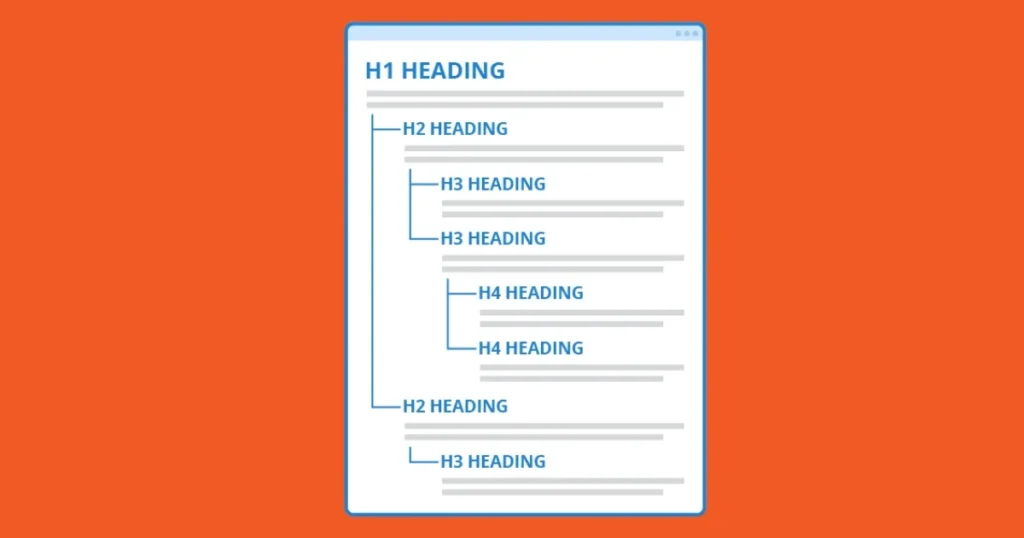
Key Tips for Optimizing Headings:
- Use a Hierarchical Structure: Employ a logical hierarchy of headings, such as H1, H2, H3, etc., to structure your content. The H1 heading is typically the most important, followed by H2 and so on.
- Incorporate Keywords: Include your target keywords in your headings, but do so naturally and avoid keyword stuffing. Search engines give more weight to keywords that appear in headings.
- Be Descriptive: Use headings that accurately describe the content of the section below. This helps users quickly understand the topic and find the information they need.
- Limit the Number of Headings: While headings are important, excessive use can make your content difficult to read and understand. Use headings sparingly and only when necessary.
- Use a Consistent Style: Maintain a consistent style for your headings throughout your website. This helps users navigate your content more easily.
- Consider Visual Appeal: Use headings to create a visually appealing structure for your content. Break up large blocks of text with headings to improve readability.
Example:
- H1: How to Optimize Your Website for Search Engines
- H2: Keyword Research
- H3: Identifying Relevant Keywords
- H4: Using Keyword Research Tools
By following these guidelines, you can create a well-structured and user-friendly website that is more likely to rank higher in search engine results pages.
4- Create High-Quality Content
High-quality content is the cornerstone of a successful website. It not only attracts and engages visitors but also improves your search engine rankings. Here’s how to create content that delivers value in your on-page SEO:

- Relevance: Ensure your content is directly relevant to your target audience’s needs and interests. Conduct thorough keyword research to identify the topics and questions they are searching for.
- Originality: Avoid plagiarism and create unique, original content. Offer a fresh perspective or new insights on your topic.
- Informative: Provide valuable information that solves problems or answers questions. Make sure your content is informative, helpful, and actionable.
- Engaging: Write in a clear, concise, and engaging style that keeps readers interested. Use storytelling techniques, humour, or examples to make your content more memorable.
- Keyword Optimization: Incorporate your target keywords naturally throughout your content without sacrificing readability. Use keyword density tools to ensure you’re optimizing your content effectively.
- Visual Appeal: Use images, videos, and other visual elements to enhance your content and make it more visually appealing.
5- Optimize Images
Images can significantly improve your website’s appearance and user experience. However, it’s essential to optimize them for both search engines and performance:

- Use Descriptive File Names: Name your images with relevant keywords to help search engines understand their content. For example, instead of “image123.jpg,” use “blue-flower-bouquet.jpg.”
- Add Alt Text: Provide descriptive alt text for each image to improve accessibility and help search engines index your content. The alt text should accurately describe the image’s content and include relevant keywords.
- Compress Images: Optimize image size to reduce loading times and improve website performance. Use tools like TinyPNG or ImageOptim to compress images without compromising quality.
- Use Appropriate Formats: Choose image formats like JPEG or PNG based on the content and desired quality. JPEG is generally suitable for photographs, while PNG is better for images with transparency or sharp edges.
6- Improve Website Structure
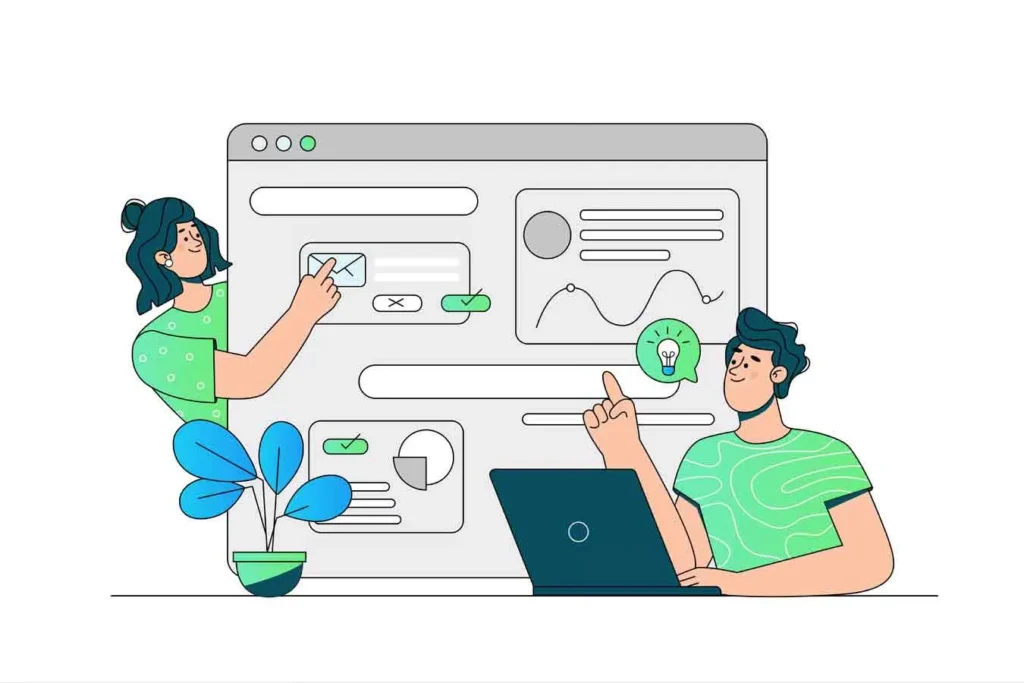
A well-structured website is easier for both users and search engines to navigate. Here are some tips for improving your website’s structure:
- Clear Navigation: Use a clear and intuitive navigation menu to help visitors find the information they need. Organize your menu items logically and use descriptive labels.
- Internal Linking: Link to relevant pages within your website to improve navigation and search engine indexing. Use anchor text that includes relevant keywords.
- Page Hierarchy: Organize your content into a logical hierarchy, with main pages at the top level and subpages underneath. This helps search engines understand the structure of your website and improves user navigation.
- Sitemaps: Create XML and HTML sitemaps to help search engines understand your website’s structure and content. This can improve your website’s visibility in search results.

7- Optimize for Mobile
With the increasing number of mobile users, it’s essential to ensure your website is mobile-friendly. Here are some tips for mobile optimization:
- Responsive Design: Use a responsive design that automatically adjusts to different screen sizes and devices. This ensures a seamless user experience across all platforms.
- Mobile-Specific Content: Consider creating mobile-specific content or features tailored to smaller screens. For example, you might simplify your navigation menu or use larger buttons for easier tapping.
- Fast Loading Times: Optimize your website’s loading speed on mobile devices. Minimize image sizes, use browser caching, and optimize your code for mobile performance.
- Easy Navigation: Ensure your website is easy to navigate on mobile devices. Use clear and concise labels, and avoid cluttered layouts.
8- Monitor and Analyze
Regularly monitoring and analyzing your website’s performance is essential for identifying areas for improvement. Here are some key metrics to track:
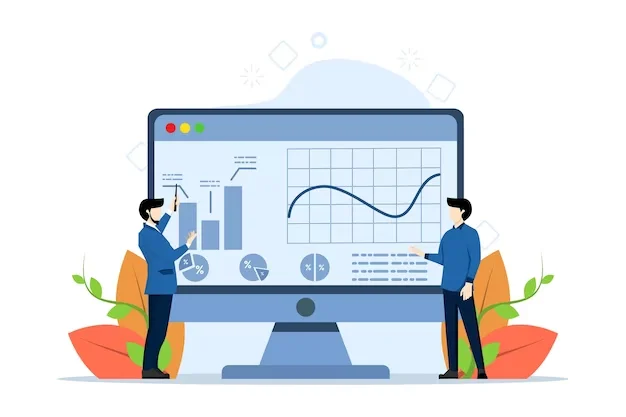
- Search Engine Rankings: Monitor your website’s rankings for target keywords using tools like Google Search Console. Consider utilizing SEO services to enhance your website’s optimization and improve rankings. Track your progress over time and identify any trends.
- Organic Traffic: Track the amount of organic traffic your website receives from search engines. Use analytics tools like Google Analytics to measure your website’s traffic sources and behaviour. Integrating SEO services can help you attract more targeted traffic and increase overall visibility.
- User Behavior: Analyze user behaviour metrics like bounce rate, time on site, and pages per session. This information can help you understand how visitors are interacting with your website and identify areas for improvement.
- Conversions: Track conversions, such as sales, leads, or sign-ups. Use tracking codes to measure the effectiveness of your marketing efforts and identify which pages are driving the most conversions.
By following these guidelines, you can optimize your website for both search engines and users, improving your website’s visibility and driving more traffic.
Ready to Skyrocket Your Search Engine Rankings? Let’s Make It Happen!
At Magic Clickz, the #1 digital marketing agency in Indore, we don’t just optimize websites we transform them into traffic-generating powerhouses! With our proven on-page SEO strategies, we’ve helped countless businesses climb the ranks on Google, delivering real results and driving massive growth. Don’t let your website stay hidden.
Check out our success stories and see how we enhanced on-page SEO for businesses, leading to increased visibility and higher conversion rates.
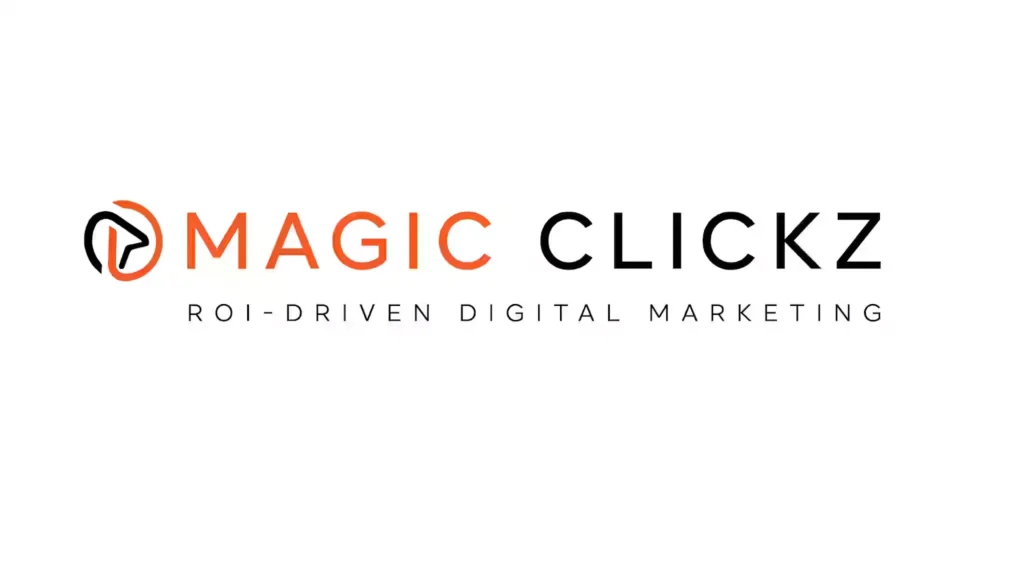
Don’t wait let’s get your website to the top of the SERPs!
Contact us today, and let’s start crafting an SEO strategy that’s tailored to your business goals.


